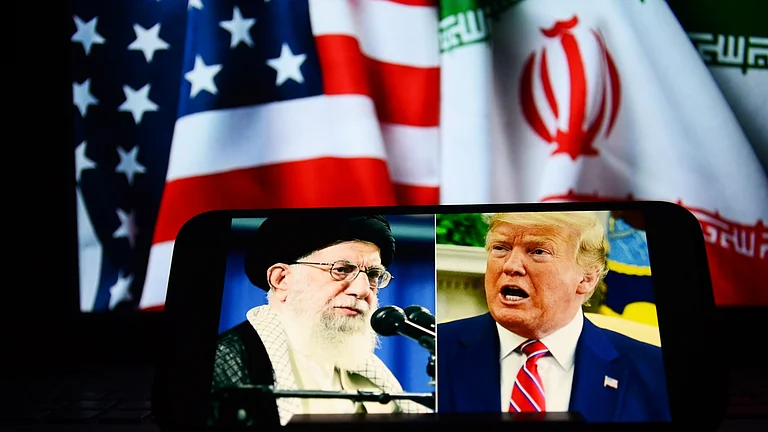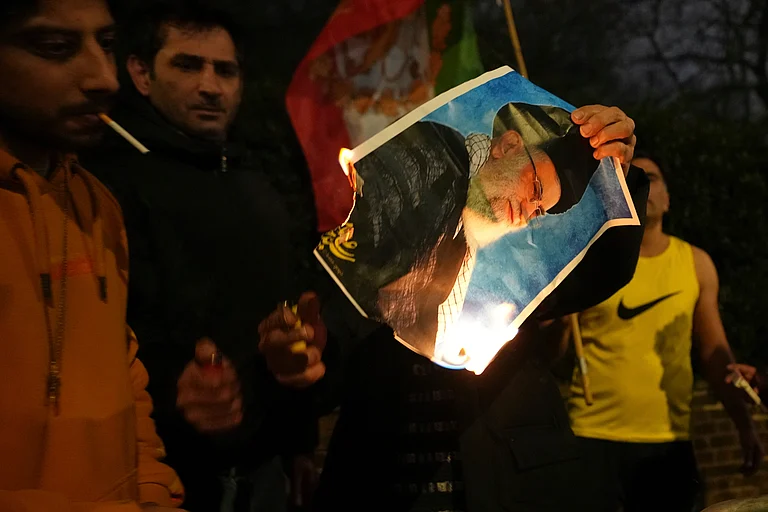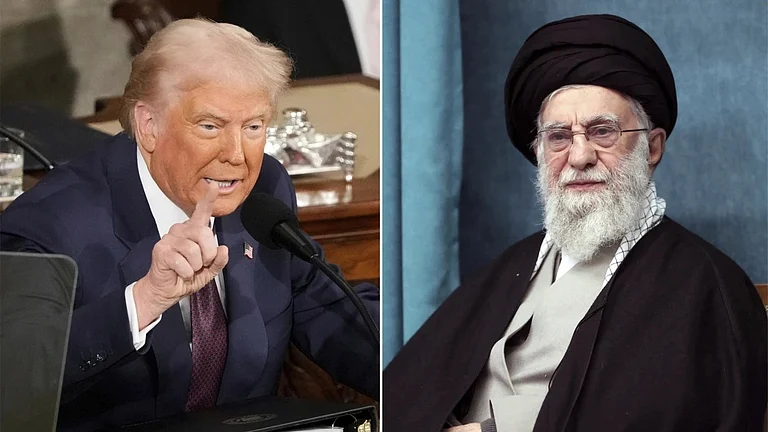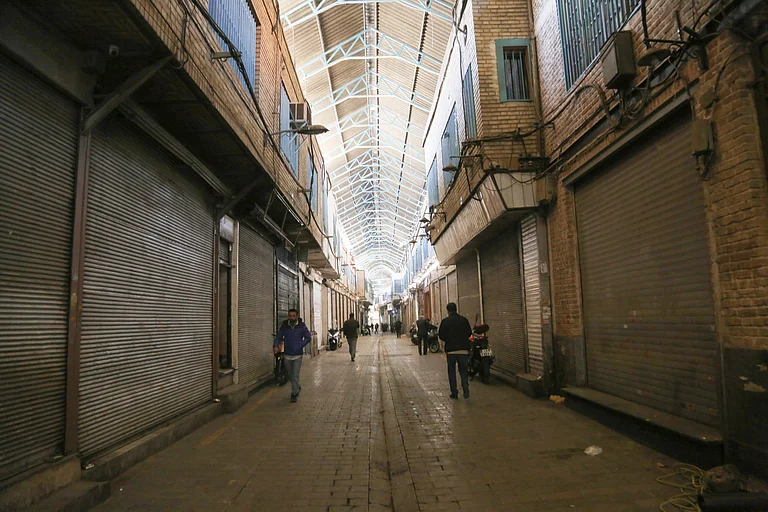On January 3, hundreds of Iranians who had gathered outside the tomb of assassinated Iranian military general Qassem Soleimani in Iran's Kerman region to mark his fourth death anniversary were caught in a twin blast that killed more than a hundred people and injured around 200.
The explosion was declared a terrorist strike by Iranian authorities. Despite Iran's President accusing Israel of organising the terrorist attacks, a top Israeli official and a representative for the US State Department both denied the claim.
Who Was Qassem Soleimani?
Revered in Iran as a national hero, but branded a terrorist by the United States, Qassem Soleimani was a popular military leader, often regarded as Iran's second-most powerful figure after Supreme Leader Ayatollah Khamenei.

Iranian Supreme Leader Ayatollah Ali Khamenei (L) greets the commander of Iran's Qods Force, Major General Qassem Soleimani, during a religious ceremony in Tehran, March 27, 2015. Credit : Wikimedia Commons Credit : wikimedia commons
Soleimani, known in Iran, for his bravery, charisma, and devotion to the army, was assassinated in a US attack at Baghdad International Airport in 2020.
He was the commander of the Revolutionary Guards' Quds Force, an elite unit in charge of Iran's overseas operations that the US deems to be a foreign terrorist organisation.
Soleimani gained popularity as the leader of the Quds Force and for his key part in fighting in Syria and Iraq, as well as in increasing Iranian influence in the Middle East, which the US and Tehran's regional enemies Saudi Arabia and Israel have struggled to keep in check.
How Was He killed?
Soleimani was assassinated on January 3, 2020, at the Baghdad International Airport in Iraq, with the approval of then-US President Donald Trump. He was reportedly killed by a US drone strike while on a diplomatic mission in Baghdad.
According to Iran's state media, a number of Iraqi officials, including five Revolutionary Guard officers and Soleimani's son-in-law, were killed as well alongside him.
The Pentagon accused Soleimani of planning attacks on Americans, organising attacks on coalition bases in Iraq, and approving an attack on the US Embassy in Baghdad in a statement issued after the strike. Following General Suleimani's death, Ayatollah Ali Khamenei called for three days of public mourning, and then retaliation.
Javed Zarif, Iran’s foreign minister, tweeted his response, saying: “The US’ act of international terrorism, targeting & assassinating General Soleimani – THE most effective force fighting Daesh (ISIS), Al Nusrah, Al Qaeda et al – is extremely dangerous & a foolish escalation.
“The US bears responsibility for all consequences of its rogue adventurism.”
What Happened After His Death?
The funeral of Qasem Soleimani, presumably the most important leader in the country's armed forces, drew some of the largest crowds ever seen in Iran for a funeral. Millions of people attended his funeral on January 6. It was second only to the funeral of Ayatollah Khomeini, the founder of the Islamic Revolution, in terms of scale.
Huge crowds assembled for Soleimani's funeral, and a few days later, Iran bombed two bases in Iraq that held American forces in order to avenge his death.
In the years since, supporters of Soleimani in Iran have erected numerous statues of him. They also held yearly commemorations that drew tens of thousands of people, including the one that was attacked on January 3.
At the same time, Iranian officials have continued pledging to avenge General Suleimani’s death.
“We have not and will not forget the blood of martyr Soleimani,” Iran’s president, Ebrahim Raisi, told an audience of thousands during last year’s anniversary of General Suleimani’s death, according to Al Jazeera.
“The Americans must know that revenge for martyr Soleimani’s blood is certain, and the murderers and perpetrators will have no easy sleep,” he added.
China, Iraq, Turkey, and Russia were among the nations that condemned the US strike.


















.png?w=200&auto=format%2Ccompress&fit=max)







